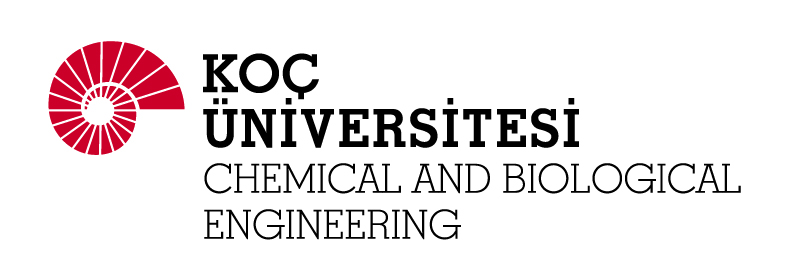Chemical & Biological Engineering is a discipline that integrates chemistry and biology at the molecular level and uses this broad foundation along with engineering fundamentals to study the synthesis of new processes and products. Our graduate program in Chemical and Biological Engineering is an interdisciplinary program that combines chemical engineering fundamentals and systems biology to meet the research challenges of the future.
Degree Requirements
Applicants must have B.S. or B.A. degrees preferably in engineering or in sciences relevant to the particular degree program. In addition to course work, students are engaged in thesis research. Every student is supervised by an advisor.
The M.Sc. with thesis program in Chemical and Biological Engineering requires 21 credits of course work (7 courses) and a thesis. Three of these courses are the following required courses:
- CHBI501 Transport Phenomena (3 credits)
- CHBI502 Advanced Reaction Engineering (3 credits)
- CHBI503 Thermodynamics (3 credits)
The remaining courses can be any of the elective courses offered. MSc students can enroll in up to two undergraduate level courses (such as courses with CHBI 3** or CHBI 4** codes, or any related courses from any other department), if they have not taken a similar or equivalent course before.
Students whose background is not Chemical (and Biological) Engineering are also required to audit the following undergraduate level core Chemical and Biological Engineering courses:
- CHBI204 Thermodynamics
- CHBI301 Fluid Mechanics (eligible for credit count)
- CHBI305 Heat and Mass Transfer (eligible for credit count)
- CHBI308 Reaction Engineering (eligible for credit count)
These undergraduate level courses are the prerequisites for the grad level required courses. In addition to the credit courses, students must complete the non-credit courses; KOLT 500: KOLT Graduate Teaching Assistant Training, CHBI 590: Seminar, ENGL 500: Academic Writing, ETHR 500: Scientific Research Methods and Research and Publication Ethics, TEAC 500: Teaching Experience and CHBI 595: MS Thesis Course.
The M.S. program without Thesis option requires that the students successfully complete a minimum of 30 credits (with 10 courses) beyond a Bachelor’s degree. The non-thesis option also consists of a non-credit pass or fail M.S. Project course.
Conditions of acceptance to the MS without Thesis program:
- Koç University Chemical and Biological Engineering BS Students:
- Minimum GPA = 2.80
- Minimum ALES = 60
- TOEFL or YDS/e-YDS/YOKDIL Requirement (for those whose native language is not English)
- Internet Based TOEFL: Minimum Score 80 (Exams taken in Türkiye must be carried out at the State Universities.)
- YDS/e-YDS/YOKDIL: 80
- Students that are graduated from the departments of Koç University other than Chemical and Biological Engineering:
- Minimum GPA = 2.80
- Minimum ALES = 60
- TOEFL or YDS/e-YDS/YOKDIL Requirement (for those whose native language is not English)
- Internet Based TOEFL: Minimum Score 80 (Exams taken in Türkiye must be carried out at the State Universities.)
- YDS/e-YDS/YOKDIL: 80
- Students should take the following 3 classes. These courses can be counted within the 10 courses that they will take throughout the program.
CHBI 301 – Fluid Mechanics
CHBI 303 – Mass Transfer
CHBI 308 – Reaction Engineering
- Students that are graduated from the Chemical and Biological Engineering departments of other universities:
- Minimum GPA = 2.80
- Minimum ALES = 60
- TOEFL or YDS/e-YDS/YOKDIL Requirement (for those whose native language is not English)
- Internet Based TOEFL: Minimum Score 80 (Exams taken in Türkiye must be carried out at the State Universities.)
- YDS/e-YDS/YOKDIL: 80
- Students that are graduated from the other departments of other universities:
- Minimum GPA = 2.80
- Minimum ALES = 60
- TOEFL or YDS/e-YDS/YOKDIL Requirement (for those whose native language is not English)
- Internet Based TOEFL: Minimum Score 80 (Exams taken in Türkiye must be carried out at the State Universities.)
- YDS/e-YDS/YOKDIL: 80
- Students should take the following 3 classes. These courses can be counted within the 10 courses that they will take throughout the program.CHBI 301 – Fluid Mechanics
CHBI 303 – Mass Transfer
CHBI 308 – Reaction Engineering
- People working at industry:
- Interview
- Minimum ALES = 60
- TOEFL or YDS/e-YDS/YOKDIL Requirement (for those whose native language is not English)
- Internet Based TOEFL: Minimum Score 80 (Exams taken in Türkiye must be carried out at the State Universities.)
- YDS/e-YDS/YOKDIL: 80
